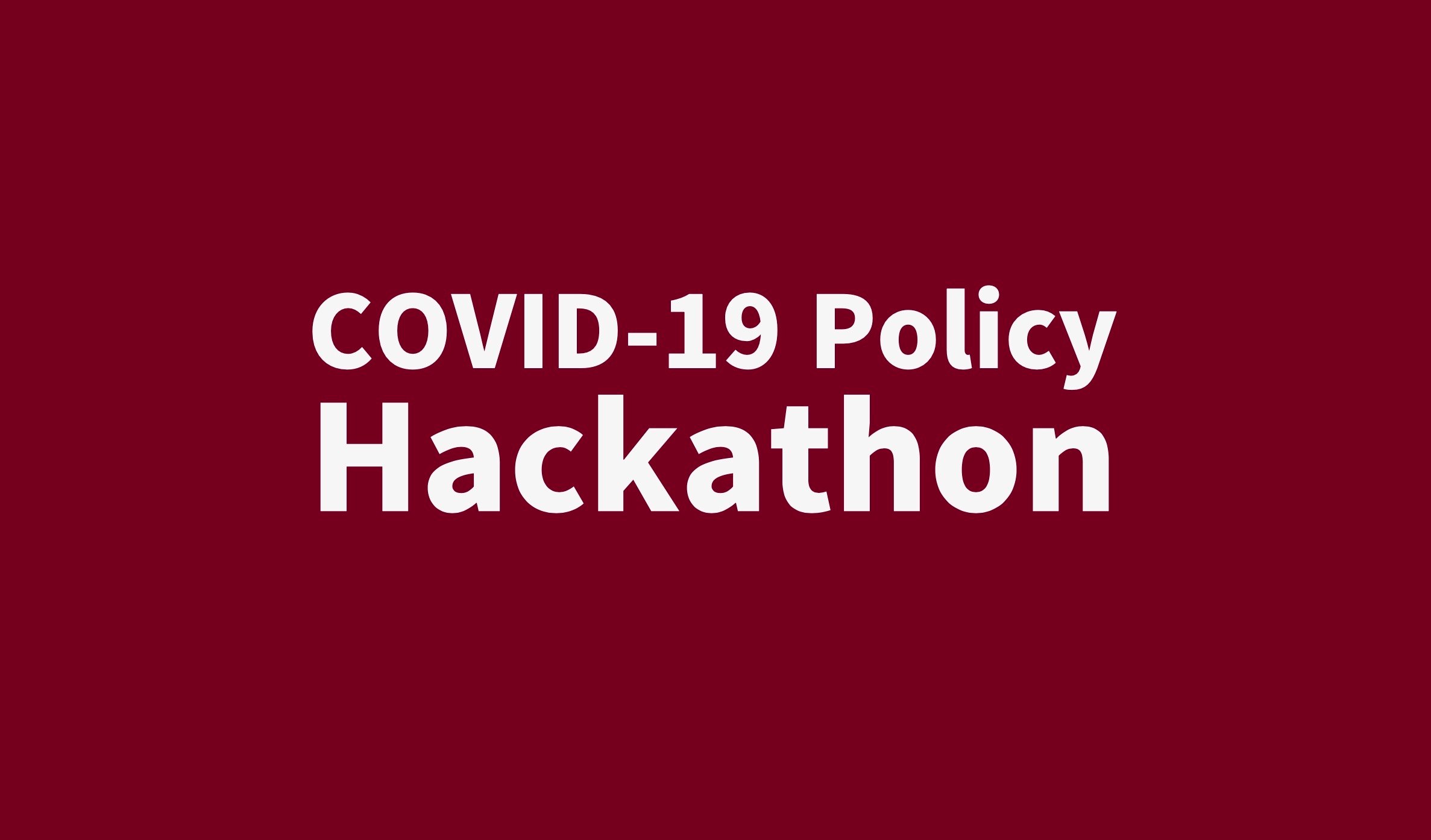In March, COVID-19 forced the Stanford Economics Association (SEA) to cancel all spring events. As undergraduates retreated to their homes, uncertainty abounded. How would students learn online? When would a vaccine be distributed? How would schools reopen?
SEA Co-Presidents Sana Gujral and Emily Molins proposed that the group create a virtual hackathon for critical, creative and collaborative thinking about pandemic-era predicaments. As most existing hackathons focus exclusively on technological solutions, we decided to create a policy hackathon dedicated to designing policy memoranda that contextualize specific issues and propose a policy recommendation supported by evidence, analysis and a comprehensive implementation plan.
The organizing team for the hackathon, composed of members from SEA, MIT Undergraduate Economics Association and Business Association of Stanford Entrepreneurial Students (BASES), formed four sub-teams: hackathon design, mentor outreach, marketing and logistics.
After eight weeks of late-night Zoom meetings, the COVID-19 Policy Hackathon commenced on June 13 with over 800 participants from 78 countries. For 36 hours, teams researched topics in one of four tracks: public health, firms and workers, trade and immigration and financial policy. Ultimately, they submitted nearly 200 policy memoranda.
Tracks were designed to be “detailed, well-researched and fairly challenging” but also broad enough to accommodate “innovative thinking in niche directions,” explained Director of Hackathon Design Abeer Dahiya. Participants in the public health track, for instance, tackled healthcare disparities between distinct age, race and socioeconomic groups. Others in the firms and workers track explored education and gender inequalities exacerbated by the crisis.
When asked about their motivations to participate, some applicants expressed their concern for disproportionately impacted minority communities, while others were fueled by frustration with uncoordinated government responses. Young participants, tired of feeling helpless, were especially eager to contribute. Many declared their intention to actively shape their generation’s future and brought a zestful energy to the hackathon.
Numerous participants had not previously attended a policy hackathon and did not intend to pursue public policy. Nevertheless, their interdisciplinary skills informed an eclectic set of approaches to problem-solving. Mentor David Tabak, Managing Director at National Economic Research Associates Economic Consulting, shared that he did not expect some teams to back their arguments with “econometric analysis comparable to what [he] would expect from [his] staff in a similar amount of time.”
The organizing team aimed to foster a learning-focused environment for participants with various academic backgrounds. Participants were shown how to construct an effective policy memorandum, offered over 50 office hours of mentorship and encouraged to attend nine presentations on topics ranging from vaccination policies to design thinking during disruption.
As a firm believer in the impact of an empowering mentor, I led the mentor outreach team. Our objective was to invite and coordinate the on-call mentors, speakers and judges who inspired our hackers. My team successfully arranged a mentor network of over 40 leading scholars and policymakers who kickstarted, developed, challenged and solidified their mentees’ thinking. After the hackathon, one grateful team attributed their success primarily to their mentor’s “time, effort and dedication.”
While the virtual and global nature of the hackathon posed logistical challenges for the organizing team, it also emboldened a global community of voices. “Reopening Brazilian Public Schools in the Post-Pandemic World” proposed a federal program to Brazilian President Bolsonaro that prioritizes classroom density and access to technology. “Addressing Sanitation Related Disparities in the Navajo Nation” advocated for a coalition between public and private institutions to provide community-based sanitation and health literacy services. “Reduc[ing] the Burden of COVID-19 Policies on Immigrants in America” asked the American Immigration Council to ameliorate the privacy risks of medical care for undocumented immigrants.
I believe that the diversity exemplified by memoranda like these is a reflection of the participants who created them. Our applicants were 21 years old on average, and 55 percent were womxn; the hackathon was a platform for voices who are often excluded from policymaking. Each unique voice is significant, as mentor Fredric Kong noted, because “each region, community or institution has its unique context, and each is facing its crisis with the pandemic.”
The organizing team is currently developing a database to house all submitted policy proposals and hopes to disseminate them to their intended audiences. Mentor and speaker Dr. Ahmad Firas Khalid said “policymakers around the world need to look no further for solutions . . . than the policy briefs produced by the incredible minds” of the hackathon participants.
In retrospect, the hackathon also created a space for like-minded individuals to meet, laugh, collaborate and create. During a marathon of social distancing, human connection was more than welcome — even virtually.
Khalid added that “the COVID-19 Policy Hackathon is an experience [he] would love to see replicated across all universities around the world.” Although the pandemic will abate, I anticipate that policy hackathons are here to stay.
Contact Avi Gupta at agupta07 ‘at’ stanford.edu or the COVID-19 Policy Hackathon Organizing Team at covid19policyhackathon ‘at’ gmail.com.
